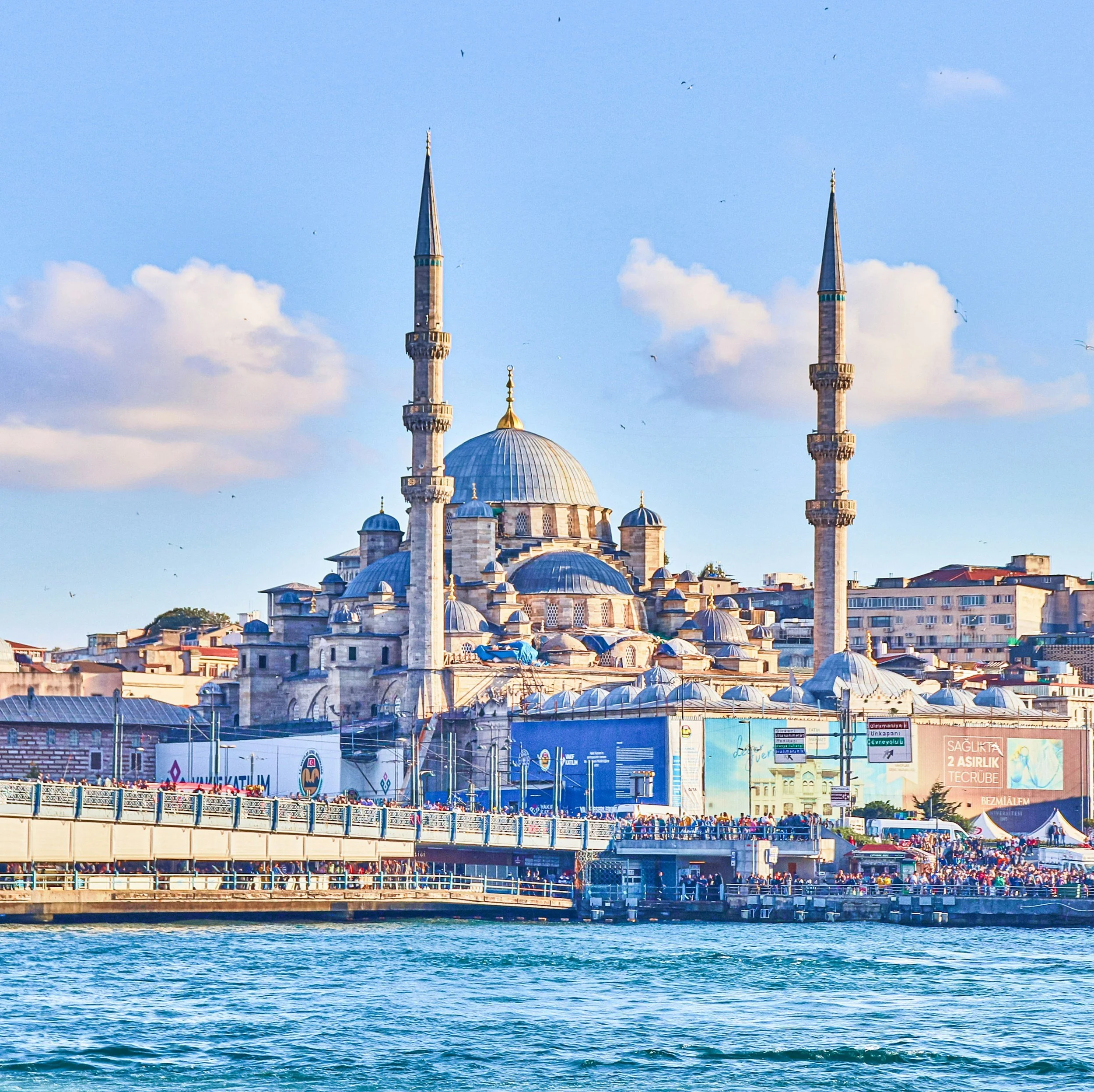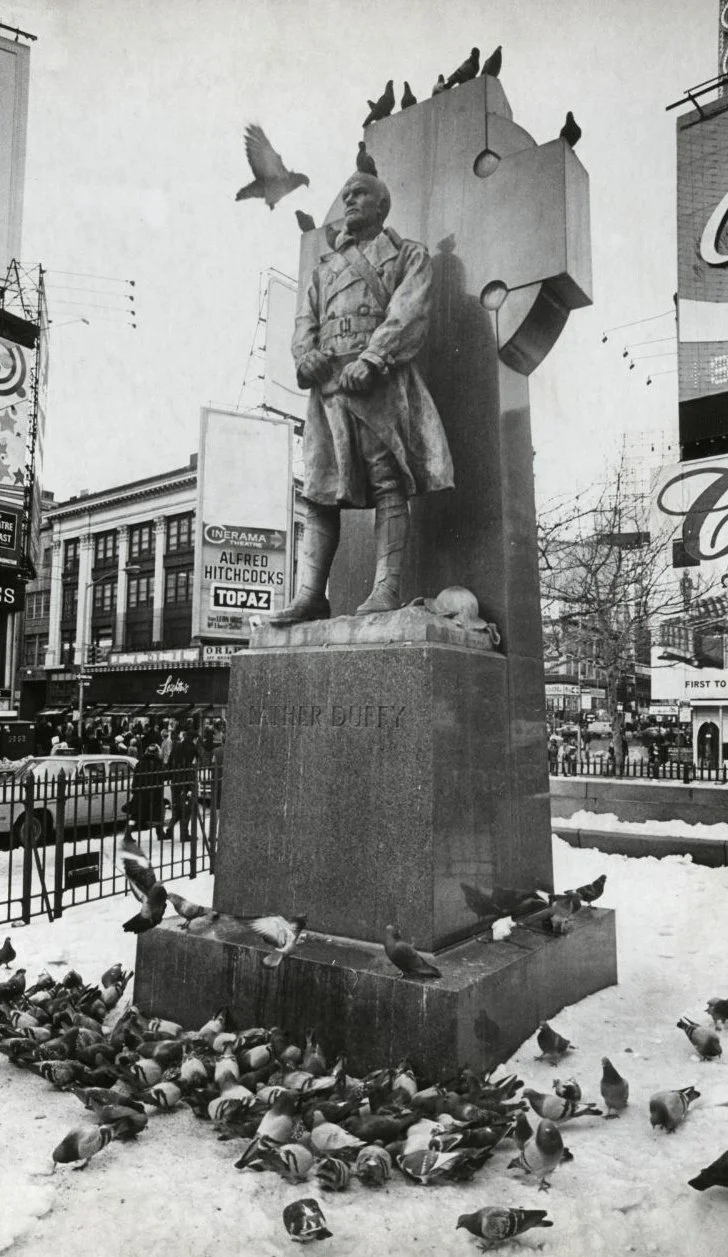March 2nd marks both the birthday of Pope Pius XII and the day in which he was elected as pope in 1939.
The great pope wrote 41 encyclicals, more than every subsequent pope put together! They are still powerful documents. Here are 5 that we recommend reading in order to get started.
In this encyclical, Pope Pius XII discusses the origins of humanity and objects to those who offer purely materialistic and nihilistic explanations for man’s existence.
If anyone examines the state of affairs outside the Christian fold, he will easily discover the principal trends that not a few learned men are following. Some imprudently and indiscreetly hold that evolution, which has not been fully proved even in the domain of natural sciences, explains the origin of all this, and audaciously support the monistic and pantheistic opinion that the world is in continual evolution. Communists gladly subscribed to this opinion so that, when the souls of men have been deprived of every idea of a personal God, they may the more efficaciously defend and propagate their dialectical materialism.
6. Such fictitious tenets of evolution which repudiate all that is absolute, firm and immutable, have paved the way for the new erroneous philosophy which, rivaling idealism, immanentism and pragmatism, has assumed the name of existentialism, since it concerns itself only with existence of individual things and neglects all consideration of their immutable essences.
7. There is also a certain historicism, which attributing value only to the events of man’s life, overthrows the foundation of all truth and absolute law both on the level of philosophical speculations and especially to Christian dogmas.
8. In all this confusion of opinion it is consolation to Us to see former adherents of rationalism today frequently desiring to return to the fountain of divinely communicated truth, and to acknowledge and profess the word of God as contained in Sacred Scripture as the foundation of religious teaching. But at the same time it is a matter of regret that not a few of these, the more firmly they accept the word of God, so much the more do they diminish the value of human reason, and the more they exalt the authority of God the Revealer, the more severely do they spurn the teaching office of the Church, which has been instituted by Christ, Our Lord, to preserve and interpret divine revelation. This attitude is not only plainly at variance with Holy Scripture, but is shown to be false by experience also. For often those who disagree with the true Church complain openly of their disagreement in matters of dogma and thus unwillingly bear witness to the necessity of a living Teaching Authority.
9. Now Catholic theologians and philosophers, whose grave duty it is to defend natural and supernatural truth and instill it in the hearts of men, cannot afford to ignore or neglect these more or less erroneous opinions. Rather they must come to understand these same theories well, both because diseases are not properly treated unless they are rightly diagnosed, and because sometimes even in these false theories a certain amount of truth is contained, and, finally because these theories provoke more subtle discussion and evaluation of philosophical and theological truths.
10. If philosophers and theologians strive only to derive such profit from the careful examination of these doctrines, there would be no reason for any intervention by the Teaching Authority of the Church. However, although We know that Catholic teachers generally avoid these errors, it is apparent, however, that some today, as in apostolic times, desirous of novelty, and fearing to be considered ignorant of recent scientific findings try to withdraw themselves from the sacred Teaching Authority and are accordingly in danger of gradually departing from revealed truth and of drawing others along with them into error.
11. Another danger is perceived which is all the more serious because it is more concealed beneath the mask of virtue. There are many who, deploring disagreement among men and intellectual confusion, through an imprudent zeal for souls, are urged by a great and ardent desire to do away with the barrier that divides good and honest men; these advocate an “eirenism” according to which, by setting aside the questions which divide men, they aim not only at joining forces to repel the attacks of atheism, but also at reconciling things opposed to one another in the field of dogma. And as in former times some questioned whether the traditional apologetics of the Church did not constitute an obstacle rather than a help to the winning of souls for Christ, so today some are presumptive enough to question seriously whether theology and theological methods, such as with the approval of ecclesiastical authority are found in our schools, should not only be perfected, but also completely reformed, in order to promote the more efficacious propagation of the kingdom of Christ everywhere throughout the world among men of every culture and religious opinion.
Mystici Corporis Christi
This encyclical discusses the Mystical Body of Christ and the need to bring all believers together in the One True Faith.
And now, Venerable Brethren, We come to that part of Our explanation in which We desire to make clear why the Body of Christ, which is the Church, should be called mystical. This name, which is used by many early writers, has the sanction of numerous Pontifical documents. There are several reasons why it should be used; for by it we may distinguish the Body of the Church, which is a Society whose Head and Ruler is Christ, from His physical Body, which, born of the Virgin Mother of God, now sits at the right hand of the Father and is hidden under the Eucharistic veils; and, that which is of greater importance in view of modern errors, this name enables us to distinguish it from any other body, whether in the physical or the moral order.
61. In a natural body the principle of unity unites the parts in such a manner that each lacks its own individual subsistence; on the contrary, in the Mystical Body the mutual union, though intrinsic, links the members by a bond which leaves to each the complete enjoyment of his own personality Moreover, if we examine the relations existing between the several members and the whole body, in every physical, living body, all the different members are ultimately destined to the good of the whole alone; while if we look to its ultimate usefulness, every moral association of men is in the end directed to the advancement of all in general and of each single member in particular; for they are persons. And thus — to return to Our theme — as the Son of the Eternal Father came down from heaven for the salvation of us all, He likewise established the body of the Church and enriched it with the divine Spirit to ensure that immortal souls should attain eternal happiness according to the words of the Apostle: “All things are yours; and you are Christ’s: and Christ is God’s.”115 For the Church exists both for the good of the faithful and for the glory of God and of Jesus Christ whom He sent.
62. But if we compare a mystical body with a moral body, it is to be noted that the difference between them is not slight; rather it is very considerable and very important. In the moral body the principal of union is nothing else than the common end, and the common cooperation of all under the authority of society for the attainment of that end; whereas in the Mystical Body of which We are speaking, this collaboration is supplemented by another internal principle, which exists effectively in the whole and in each of its parts, and whose excellence is such that of itself it is vastly superior to whatever bonds of union may be found in a physical or moral body. As We said above, this is something not of the natural but of the supernatural order; rather it is something in itself infinite, uncreated: the Spirit of God, who, as the Angelic Doctor says, “numerically one and the same, fills and unifies the whole Church.” 116
63. Hence, this word in its correct signification gives us to understand that the Church, a perfect society of its kind, is not made up of merely moral and juridical elements and principles. It is far superior to all other human societies;117it surpasses them as grace surpasses nature, as things immortal are above all those that perish.118 Such human societies, and in the first place civil Society, are by no means to be despised or belittled, but the Church in its entirely is not found within this natural order, any more than the whole of man is encompassed within the organism of our mortal body. 119 Although the juridical principles, on which the Church rests and is established, derive from the divine constitution given to it by Christ and contribute to the attaining of its supernatural end, nevertheless that which lifts the Society of Christians far above the whole natural order is the Spirit of our Redeemer who penetrates and fills every part of the Church’s being and is active within it until the end of time as the source of every grace and every gift and every miraculous power. just as our composite mortal body, although it is a marvelous work of the Creator, falls far short of the eminent dignity of our soul, so the social structure of the Christian community, though it proclaims the wisdom of its divine Architect, still remains something inferior when compared to the spiritual gifts which give it beauty and life, and to the divine source whence they flow.
In this encyclical, Pius XII discusses materialism in light of not just those who deny the spiritual life, but those who love money excessively.
The true greatness of this jubilee year is in the humble answer of the man who admits that he is a sinner. Great blessings for the Church could be justly anticipated if every pilgrim to Lourdes — in fact, every Christian united in spirit with the centenary celebrations — would first realize within himself this work of sanctification, “not in word, neither with the tongue, but in deed and in truth.”[21] Moreover, everything invites him to this work, for nowhere, perhaps, except at Lourdes does one feel so moved to prayer, to the forgetting of oneself, and to charity.
40. When they see the devotion of the stretcher-bearers and the serene peace of the invalids, when they consider the spirit of brotherhood which unites the faithful of all races in a single prayer, when they observe the spontaneous mutual assistance and the sincere fervor of the pilgrims kneeling before the grotto, then the best of men are seized by the appeal of a life more completely dedicated to the service of God and their brothers; the less fervent become conscious of their lukewarmness and return to the road of prayer; quite hardened and skeptical sinners are often touched by grace, or at least, if they are honest, are moved by the testimony of this “multitude of believers of one heart and one soul.”[22]
41. But in itself this experience of a few brief days of pilgrimage is not usually sufficient to engrave in indelible letters the call of Mary to a genuine spiritual conversion. That is why We exhort the shepherds of dioceses and all priests to outdo one another in zeal that the centenary pilgrimages may benefit by preparation, and, above all, by a follow-up which will be as conducive as possible to a profound and lasting action of grace.
42. Only on condition of a return to regular reception of the sacraments, a regard for Christian morals in everyday life, entry into the ranks of Catholic Action and other apostolates recommended by the Church, can the great crowds expected to gather at Lourdes in 1958 yield — according to the expectations of the Immaculate Virgin herself — the fruits of salvation so necessary to mankind today.
43. But however important it may be, the conversion of the individual pilgrim is not enough. We exhort you in this jubilee year, Beloved Sons and Venerable Brothers, to inspire among the faithful entrusted to your care a common effort for the Christian renewal of society in answer to Mary’s appeal.
44. “May blind spirits . . . be illumined by the light of truth and justice,” Pius XI asked during the Marian feasts of the Jubilee of the Redemption, “so that those who have gone astray into error may be brought back to the straight path, that a just liberty may be granted the Church everywhere, and that an era of peace and true prosperity may come upon all the nations.”[23]
45. But the world, which today affords so many justifiable reasons for pride and hope, is also undergoing a terrible temptation to materialism which has been denounced by Our Predecessors and Ourselves on many occasions.
46. This materialism is not confined to that condemned philosophy which dictates the policies and economy of a large segment of mankind. It rages also in a love of money which creates ever greater havoc as modern enterprises expand, and which, unfortunately, determines many of the decisions which weigh heavy on the life of the people. It finds expression in the cult of the body, in excessive desire for comforts, and in flight from all the austerities of life. It encourages scorn for human life, even for life which is destroyed before seeing the light of day.
47. This materialism is present in the unrestrained search for pleasure, which flaunts itself shamelessly and tries, through reading matter and entertainments, to seduce souls which are still pure. It shows itself in lack of interest in one’s brother, in selfishness which crushes him, in justice which deprives him of his rights — in a word, in that concept of life which regulates everything exclusively in terms of material prosperity and earthly satisfactions.
48. “And I will say to my soul. the rich man said, Soul, thou hast many good things laid up for many years; take thy ease, eat, drink, be merry. But God said to him, Thou fool, this night do they demand thy soul of thee.”[24]
49. To a society which in its public life often contests the supreme rights of God, to a society which would gain the whole world at the expense of its own soul[25] and thus hasten to its own destruction, the Virgin Mother has sent a cry of alarm.
50. May priests be attentive to her appeal and have the courage to preach the great truths of salvation fearlessly. The only lasting renewal, in fact, will be one based on the changeless principles of faith, and it is the duty of priests to form the consciences of Christian people.
51. Just as the Immaculate, compassionate of our miseries, but discerning our real needs, came to men to remind them of the essential and austere steps of religious conversion, so the ministers of the Word of God should, with supernatural confidence, point out to souls the narrow road which leads to life.[26] They will do this without forgetting the spirit of kindness and patience which they profess, but also without concealing anything of the Gospel’s demands.[27] In the school of Mary they will learn to live not only that they may give Christ to the world, but also, if need be, to await with faith the hour of Jesus and to remain at the foot of the cross.
52. Assembled around their priests, the faithful must cooperate in this effort for renewal. Wherever Providence has placed a man, there is always more to be done for God’s cause. Our thoughts turn first to the host of consecrated souls who, within the framework of the Church, devote themselves to innumerable good works. Their religious vows dedicate them more than others to fight victoriously under Mary’s banner against the onslaught which inordinate lust for freedom, riches, and pleasure makes on the world. In response to the Immaculate, they will resolve to oppose the attacks of evil with the weapons of prayer and penance and by triumphs of charity.
Subtitled ‘Communism and the church in China’, Pius XII here dwells upon the fake Catholicism which had been established by the Chinese Communist Party.
since these crimes are being committed under the guise of patriotism, We consider it Our duty to remind everyone once again of the Church’s teaching on this subject.
21. For the Church exhorts and encourages Catholics to love their country with sincere and strong love, to give due obedience in accord with natural and positive divine law to those who hold public office, to give them active and ready assistance for the promotion of those undertakings by which their native land can in peace and order daily achieve greater prosperity and further true development.
22. The Church has always impressed on the minds of her children that declaration of the Divine Redeemer: “Render therefore to Caesar the things that are Caesar’s and to God the things that are God’s.”[5] We call it a declaration because these words make certain and incontestable the principle that Christianity never opposes or obstructs what is truly useful or advantageous to a country.
23. However, if Christians are bound in conscience to render to Caesar (that is, to human authority) what belongs to Caesar, then Caesar likewise, or those who control the state, cannot exact obedience when they would be usurping God’s rights or forcing Christians either to act at variance with their religious duties or to sever themselves from the unity of the Church and its lawful hierarchy.
24. Under such circumstances, every Christian should cast aside all doubt and calmly and firmly repeat the words with which Peter and the other Apostles answered the first persecutors of the Church: “We must obey God rather than men.”[6]
25. With emphatic insistence, those who promote the interests of this association which claims a monopoly on patriotism, speak over and over again of peace and admonish Catholics earnestly to exert all their efforts to establish it. On the surface these words are excellent and righteous, for who deserves greater praise than the man who prepares the way to introduce and establish peace?
26. But peace — as you well know, Venerable Brethren and beloved sons — does not consist of words alone and does not rely on changing formulas which are suitable for the moment but contradict one’s real plans and practices, which do not conform with the meaning and way of true peace but with hatred, discord, and deceit.
27. Peace worthy of the name must be founded on the principles of charity and justice which He taught who is the “Prince of Peace,”[7] and who adopted this title as a kind of royal standard for Himself. True peace is that which the Church desires to be established: one that is stable, just, fair, and founded on right order; one which binds all together — citizens, families, and peoples — by the firm ties of the rights of the Supreme Lawgiver, and by the bonds of mutual fraternal love and cooperation.
28. As she looks forward to and hopes for this peaceful dwelling together of nations, the Church expects each nation to preserve that degree of dignity which becomes it. For the Church, which has ever kept a friendly attitude toward the various events in your country, long ago spoke through Our late Predecessor of happy memory and expressed the desire that “full recognition be given to the legitimate aspirations and rights of the nation, which is more populous than any other, whose civilization and culture go back to the earliest times, which has, in past ages, with the development of its resources, had periods of great prosperity, and which — it may be reasonably conjectured — will become even greater in the future ages, provided it pursues justice and honor.
This beautiful meditation on the Sacred Heart is a moving reminder of the need to devote ourselves to the traditions of the church for consolation.
Since we have been introduced, venerable brethren, to the innermost mystery of the infinite charity of the Word Incarnate by these words of the disciple “whom Jesus loved and who also leaned on His breast at the supper,”[28] it seems meet and just, right and availing unto salvation, to pause for a short time in sweet contemplation of this mystery so that, enlightened by that light which shines from the Gospel and makes clearer the mystery itself, we also may be able to obtain the realization of the desire of which the Apostle of the Gentiles speaks in writing to the Ephesians. “That Christ may dwell by faith in your hearts, that being rooted and founded in charity you may be able to comprehend with all the saints what is the breadth, and length, and height, and depth; to know also the charity of Christ which surpasseth all knowledge, that you may be filled unto all the fulness of God.”[29]
35. The mystery of the divine redemption is primarily and by its very nature a mystery of love, that is, of the perfect love of Christ for His heavenly Father to Whom the sacrifice of the Cross, offered in a spirit of love and obedience, presents the most abundant and infinite satisfaction due for the sins of the human race; “By suffering out of love and obedience, Christ gave more to God than was required to compensate for the offense of the whole human race.”[30]
36. It is also a mystery of the love of the Most Holy Trinity and of the divine Redeemer towards all men. Because they were entirely unable to make adequate satisfaction for their sins,[31] Christ, through the infinite treasure of His merits acquired for us by the shedding of His precious Blood, was able to restore completely that pact of friendship between God and man which had been broken, first by the grievous fall of Adam in the earthly paradise and then by the countless sins of the chosen people.
37. Since our divine Redeemer as our lawful and perfect Mediator, out of His ardent love for us, restored complete harmony between the duties and obligations of the human race and the rights of God, He is therefore responsible for the existence of that wonderful reconciliation of divine justice and divine mercy which constitutes the sublime mystery of our salvation. On this point the Angelic Doctor wisely comments: “That man should be delivered by Christ’s Passion was in keeping with both His mercy and His justice. With His justice, because by His Passion Christ made satisfaction for the sins of the human race, and so man was set free by Christ’s justice; and with His mercy, for since man of himself could not satisfy for the sin of all human nature, God gave him His Son to satisfy for him. And this came of a more copious mercy than if he had forgiven sins without satisfaction: Hence St. Paul says: ‘God, who is rich in mercy, by reason of His very great love wherewith He has loved us even when we were dead by reason of our sins, brought us to life together with Christ.'”[32]











Read how each politician voted.